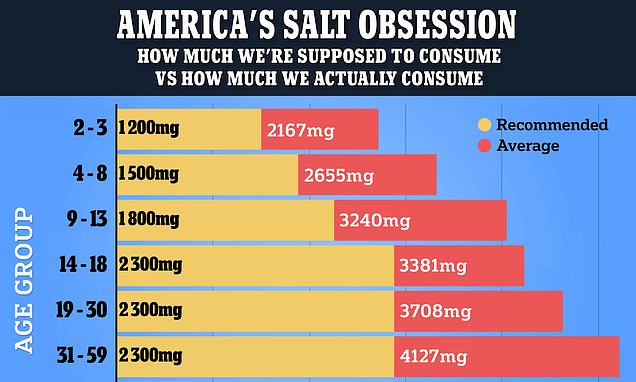Mito
Member
- Joined
- Dec 10, 2016
- Messages
- 2,554
Abstract
Replacement of regular salt with potassium-enriched substitutes reduces blood pressure in controlled situations, mainly among people with hypertension. We report on a population-wide implementation of this strategy in a stepped-wedge cluster randomized trial (NCT01960972). The regular salt in enrolled households was retrieved and replaced, free of charge, with a combination of 75% NaCl and 25% KCl. A total of 2,376 participants were enrolled in 6 villages in Tumbes, Peru. The fully adjusted intention-to-treat analysis showed an average reduction of 1.29 mm Hg (95% confidence interval (95% CI) (−2.17, −0.41)) in systolic and 0.76 mm Hg (95% CI (−1.39, −0.13)) in diastolic blood pressure. Among participants without hypertension at baseline, in the time- and cluster-adjusted model, the use of the salt substitute was associated with a 51% (95% CI (29%, 66%)) reduced risk of developing hypertension compared with the control group. In 24-h urine samples, there was no evidence of differences in sodium levels (mean difference 0.01; 95% CI (0.25, −0.23)), but potassium levels were higher at the end of the study than at baseline (mean difference 0.63; 95% CI (0.78, 0.47)). Our results support a case for implementing a pragmatic, population-wide, salt-substitution strategy for reducing blood pressure and hypertension incidence.
Effect of salt substitution on community-wide blood pressure and hypertension incidence
Replacement of regular salt with potassium-enriched substitutes reduces blood pressure in controlled situations, mainly among people with hypertension. We report on a population-wide implementation of this strategy in a stepped-wedge cluster randomized trial (NCT01960972). The regular salt in enrolled households was retrieved and replaced, free of charge, with a combination of 75% NaCl and 25% KCl. A total of 2,376 participants were enrolled in 6 villages in Tumbes, Peru. The fully adjusted intention-to-treat analysis showed an average reduction of 1.29 mm Hg (95% confidence interval (95% CI) (−2.17, −0.41)) in systolic and 0.76 mm Hg (95% CI (−1.39, −0.13)) in diastolic blood pressure. Among participants without hypertension at baseline, in the time- and cluster-adjusted model, the use of the salt substitute was associated with a 51% (95% CI (29%, 66%)) reduced risk of developing hypertension compared with the control group. In 24-h urine samples, there was no evidence of differences in sodium levels (mean difference 0.01; 95% CI (0.25, −0.23)), but potassium levels were higher at the end of the study than at baseline (mean difference 0.63; 95% CI (0.78, 0.47)). Our results support a case for implementing a pragmatic, population-wide, salt-substitution strategy for reducing blood pressure and hypertension incidence.
Effect of salt substitution on community-wide blood pressure and hypertension incidence

